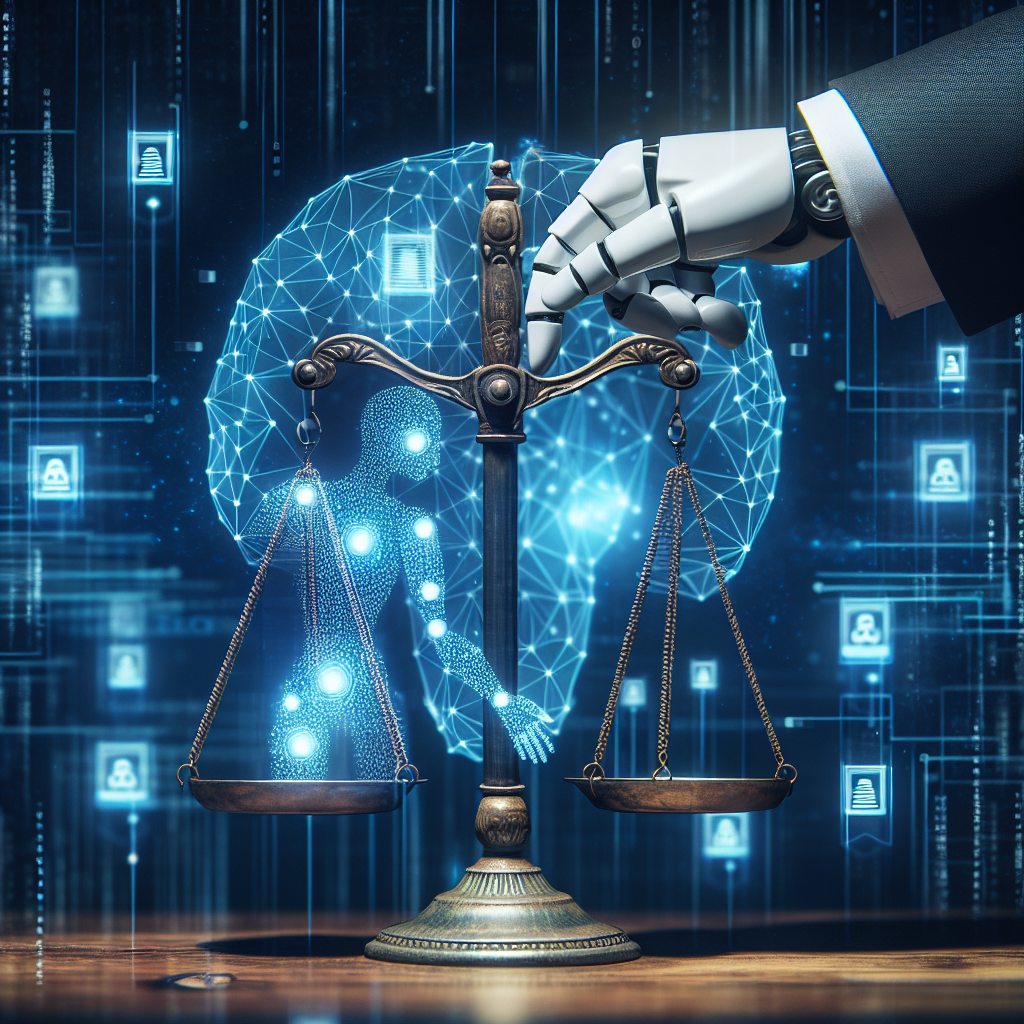Introduction
Artificial Intelligence (AI) has been making significant strides in various industries, and the criminal justice system is no exception. AI technology has the potential to revolutionize law enforcement and judicial processes, making them more efficient, effective, and fair. From predictive policing to case analysis and sentencing recommendations, AI has the power to transform the way we approach crime and justice.
In this article, we will explore the role of AI in criminal justice, examining how it can improve law enforcement and judicial processes. We will also address some common questions and concerns about the use of AI in the criminal justice system.
AI in Law Enforcement
One of the most prominent uses of AI in law enforcement is predictive policing. Predictive policing uses AI algorithms to analyze historical crime data and predict where crimes are likely to occur in the future. By identifying high-risk areas, law enforcement agencies can deploy resources more effectively and deter potential criminal activity.
AI can also be used in surveillance systems to monitor public spaces and identify suspicious behavior. Facial recognition technology, for example, can help law enforcement agencies track down suspects and solve crimes more quickly. However, the use of facial recognition technology has sparked concerns about privacy and civil liberties, prompting calls for regulation and oversight.
Another area where AI can improve law enforcement is in the analysis of evidence. AI algorithms can process large amounts of data, such as DNA evidence or surveillance footage, more quickly and accurately than humans. This can help law enforcement agencies solve crimes faster and with more confidence.
Overall, AI has the potential to make law enforcement more efficient and effective, leading to safer communities and a more responsive criminal justice system.
AI in Judicial Processes
In addition to law enforcement, AI can also play a crucial role in judicial processes. AI algorithms can analyze legal documents and case law to help lawyers and judges make more informed decisions. This can save time and reduce the likelihood of errors in legal proceedings.
AI can also be used in sentencing recommendations. By analyzing factors such as the severity of the crime, the defendant’s criminal history, and other relevant information, AI algorithms can provide judges with data-driven recommendations for sentencing. This can help ensure that sentences are fair and consistent across cases.
Furthermore, AI can help with case management by organizing and categorizing legal documents and evidence. This can streamline the legal process and make it easier for lawyers and judges to access relevant information.
Overall, AI has the potential to improve judicial processes by providing legal professionals with valuable insights and recommendations, leading to a more efficient and fair criminal justice system.
FAQs
Q: Will AI replace human law enforcement officers and judges?
A: AI is meant to assist human law enforcement officers and judges, not replace them. While AI can help with tasks such as predictive policing and legal analysis, human judgment and discretion are still essential in the criminal justice system.
Q: How accurate are AI algorithms in predicting crime and recommending sentences?
A: AI algorithms are constantly improving, but they are not infallible. It is important for law enforcement agencies and judicial systems to regularly evaluate and refine AI algorithms to ensure their accuracy and fairness.
Q: What measures are in place to prevent bias in AI algorithms used in the criminal justice system?
A: Bias in AI algorithms is a significant concern, as they can perpetuate existing inequalities in the criminal justice system. To mitigate bias, it is essential to train AI algorithms on diverse data sets, regularly audit them for bias, and involve stakeholders from marginalized communities in the development process.
Q: How can AI help address the backlog of cases in the criminal justice system?
A: AI can help with case management by organizing and categorizing legal documents and evidence, making it easier for lawyers and judges to process cases more quickly. AI can also help identify cases that are likely to be resolved quickly, allowing legal professionals to prioritize their workload.
Conclusion
AI has the potential to transform the criminal justice system, making law enforcement and judicial processes more efficient, effective, and fair. From predictive policing to legal analysis and sentencing recommendations, AI technology can provide valuable insights and recommendations to help law enforcement officers and legal professionals make more informed decisions.
While there are concerns about the use of AI in the criminal justice system, such as bias in algorithms and privacy issues, these challenges can be addressed through careful oversight and regulation. By harnessing the power of AI responsibly, we can create a more responsive and equitable criminal justice system for all.
Overall, the role of AI in criminal justice is promising, with the potential to improve public safety, ensure justice is served, and uphold the rule of law. As AI technology continues to advance, it will be crucial for law enforcement agencies and judicial systems to adapt and embrace these innovations to create a more effective and fair criminal justice system.

